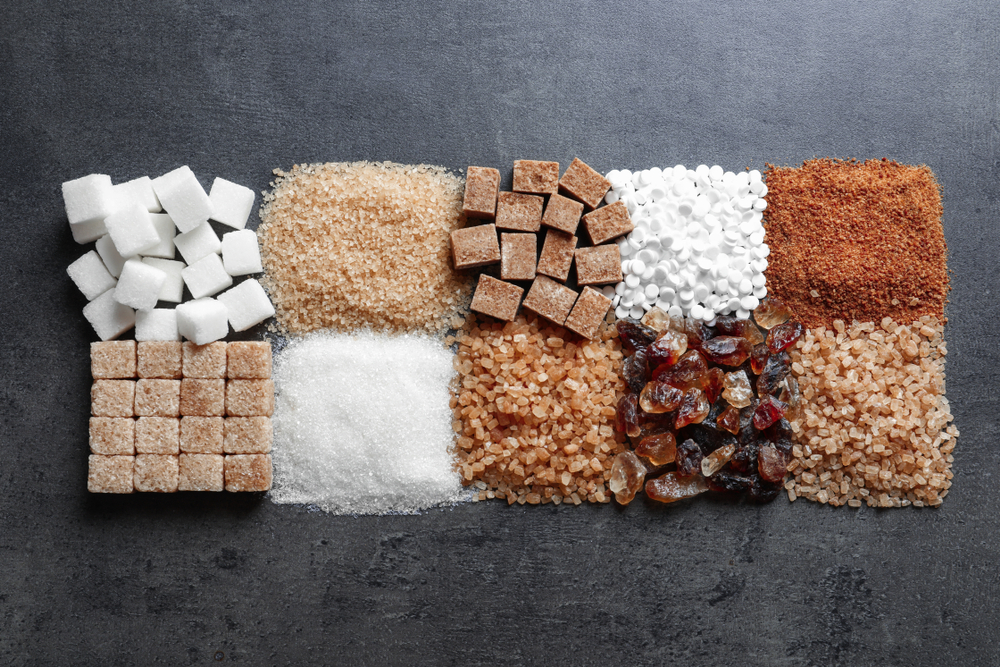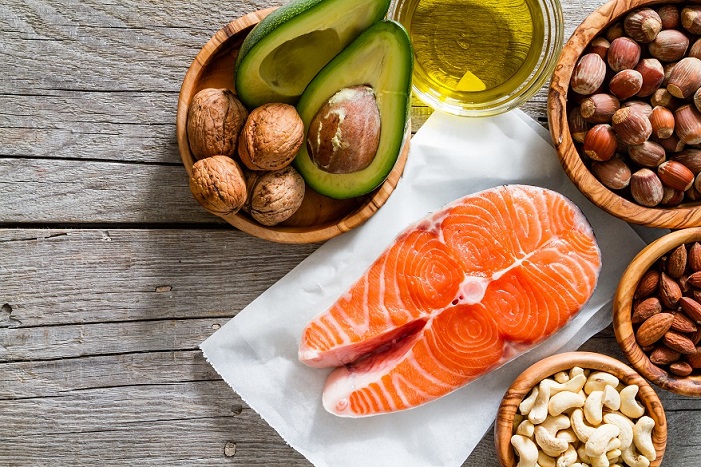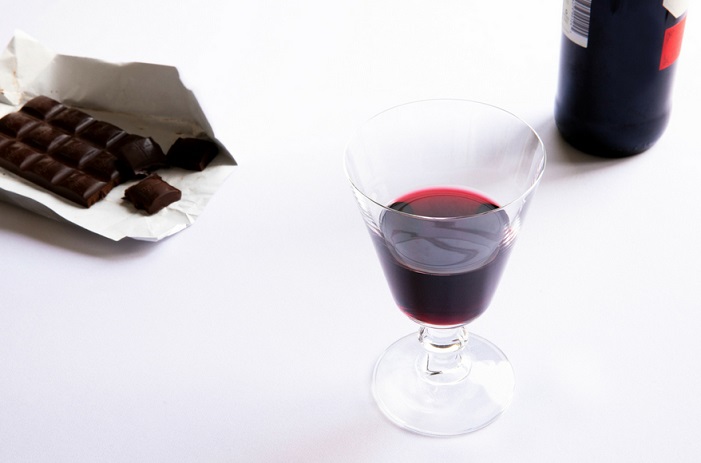Craving a touch of sweetness in your life, but wary of the health pitfalls linked with conventional sugar? You’re part of a growing community seeking to balance the sweet pleasures of life with healthful living. While the allure of that sugar jar is real, so too is the staggering statistic: the average American consumes about 17 teaspoons of sugar every day! If you’re wondering about healthier sugar alternatives, let this be your comprehensive guide.
Table of Contents
Natural Sweeteners
– Monk Fruit
– Coconut Sugar
– Agave Nectar
– Honey
– Maple Syrup
– Date Syrup
– Molasses
Artificial Sweeteners
– Stevia
– Erythritol
– Xylitol
– Aspartame
– Saccharin
– Sucralose
Swapping Made Simple
Nature’s Own Sweet Solutions
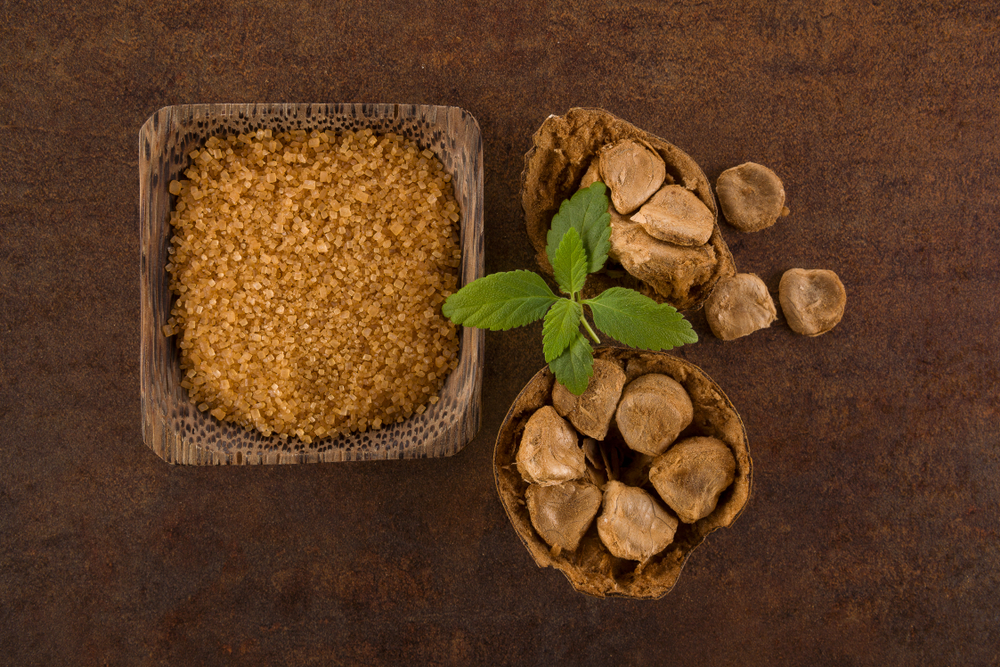
Monk Fruit:
A natural sweetener made from a small Asian melon, it’s zero-calorie and often blended with other sweeteners to reduce its intensity. Ideal for beverages and some baked goods due to its intense sweetness.
Sugar Estimate & GI Impact: 0g; Zero GI impact.
Coconut Sugar:
Derived from coconut sap, it’s granulated and resembles brown sugar. With a subtle caramel flavor, it’s a direct sugar substitute in baking and cooking.
Sugar Estimate & GI Impact: 15g per tablespoon; Low GI impact.
Agave Nectar:
Sourced from the agave plant, this syrupy sweetener is often used in beverages due to its solubility. However, it’s highly processed and much sweeter than sugar, so for this sugar alternative, moderation is key.
Sugar Estimate & GI Impact: 16g per tablespoon; Low to Moderate GI impact.
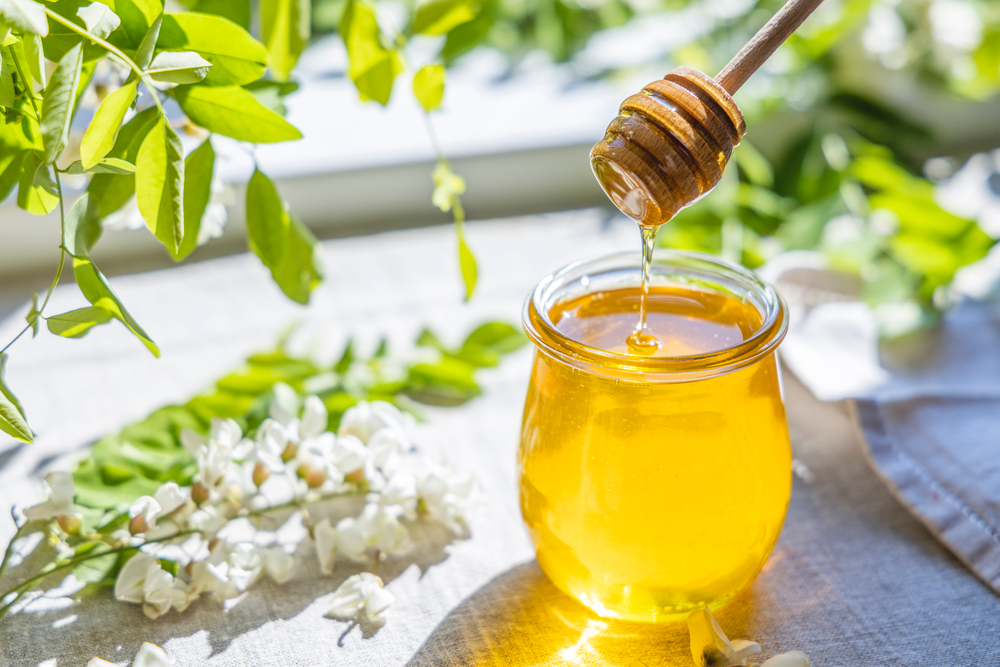
Honey:
An ancient sweetener sourced from bees, honey is not just sugar; it’s a blend of glucose, fructose, and minerals. Its viscosity and distinct flavor make it ideal for teas, baking, and drizzling over desserts.
Sugar Estimate & GI Impact: Approximately 17g per tablespoon; Moderate GI impact.
Maple Syrup:
Extracted from the sap of sugar maple trees, this syrup is perfect for pancakes and can replace sugar in recipes. Its caramel undertones make it a favorite for both cooking and baking.
Sugar Estimate & GI Impact: 14g per tablespoon; Moderate to High GI impact.
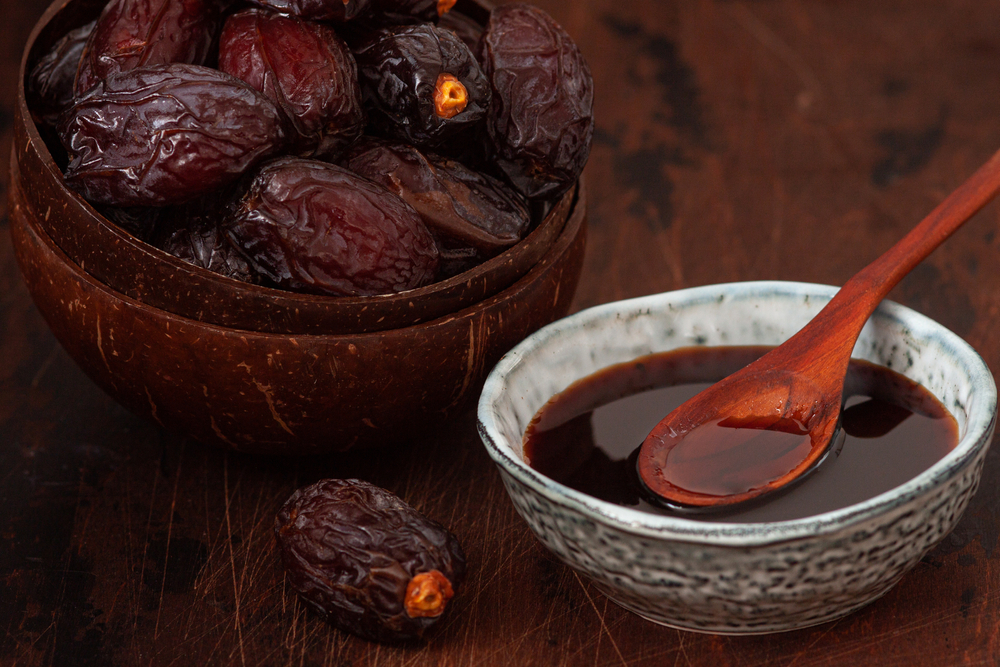
Date Syrup:
Dates, when liquefied, create a sweet syrup that’s ideal for smoothies or as a natural sweetener in baked goods. Its rich, fruity essence and nutritional value give it an edge.
Sugar Estimate & GI Impact: 13g per tablespoon; Low GI impact.
Molasses:
This by-product of sugar cane processing is a thick, dark syrup. While robust and slightly bitter, it’s perfect for gingerbread, baked beans, or even marinades.
Sugar Estimate & GI Impact: 15g per tablespoon; Moderate GI impact.
Scientifically Sweet Alternatives
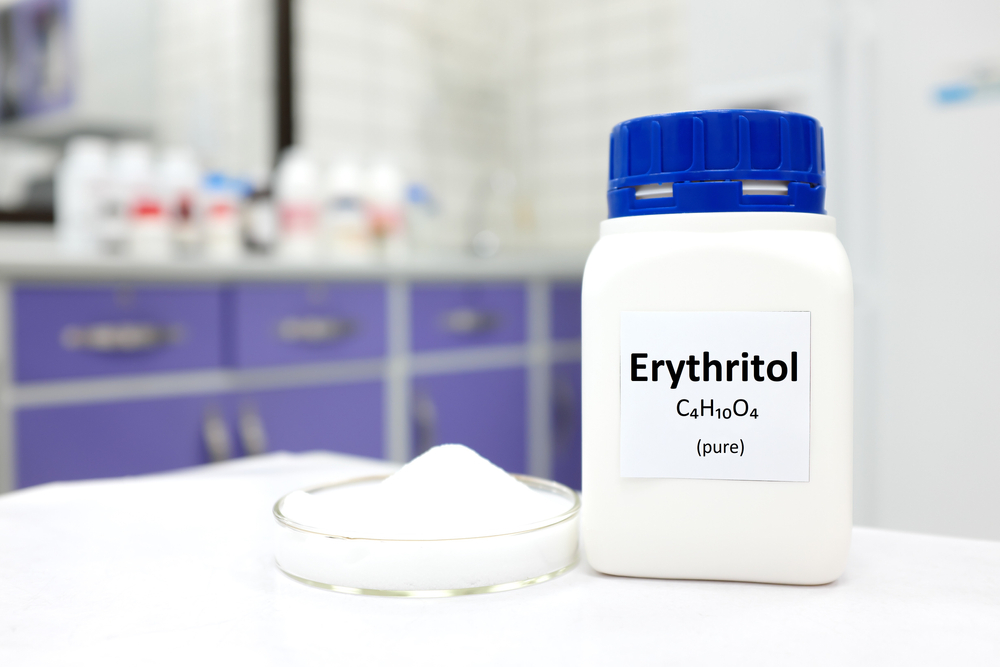
Stevia:
Stevia, a zero-calorie sweetener from the Stevia plant, available in powder or liquid, it’s perfect for beverages, but its potency requires careful measurement in baking.
This sweetener has been extensively researched and is recognized as safe by major health organizations like the WHO and FDA. However, for specific concerns or sensitivities, consulting a healthcare provider is recommended.
Sugar Estimate & GI Impact: 0g; Zero GI impact.
Erythritol:
A sugar alcohol that’s naturally found in fruits, its granulated form makes it an easy 1:1 sugar substitute in recipes. It doesn’t cause spikes in blood sugar, making it popular among diabetics.
Sugar Estimate & GI Impact: 0g; Zero GI impact.
Xylitol:
Another sugar alcohol, xylitol tastes close to sugar and benefits dental health. Common in gum and toothpaste, it’s also good for baking but beware: it’s toxic to pets.
Sugar Estimate & GI Impact: 10g per tablespoon; Low GI impact.
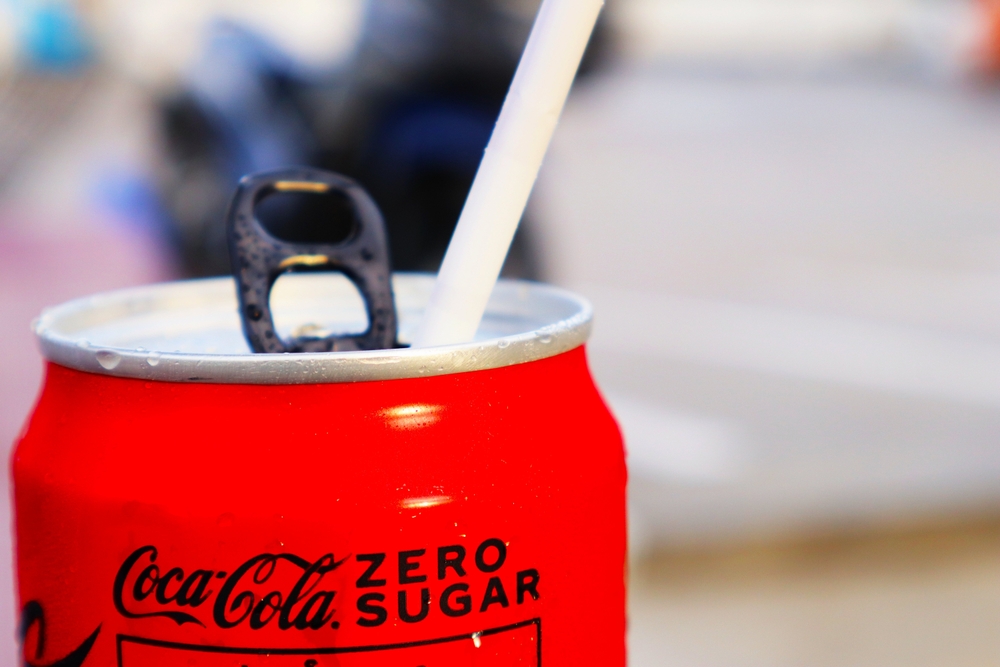
Aspartame:
Wait? This is on the list? Aspartame has been surrounded by debates, but extensive studies have deemed it safe. It’s zero calorie and often found in diet sodas and sugar-free gum, so it’s not suitable for high-heat cooking or baking.
Sugar Estimate & GI Impact: 0g; Zero GI impact.
Saccharin:
One of the earliest artificial sweeteners, saccharin is calorie-free and often used in soft drinks. While there were initial health concerns, it’s now recognized as a safe sugar alternative in moderation.
Sugar Estimate & GI Impact: 0g; Zero GI impact.
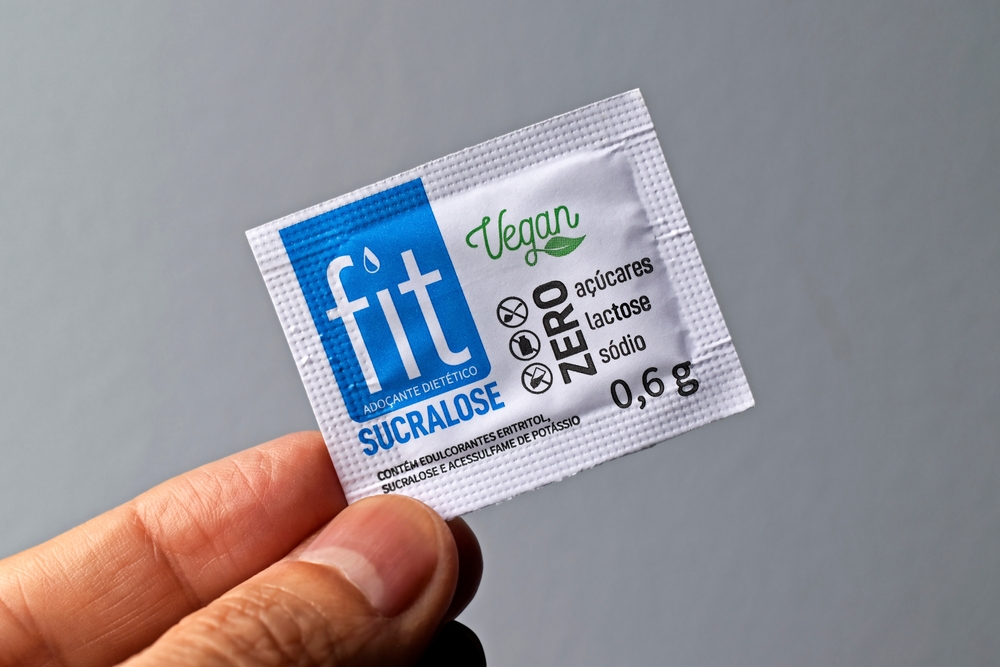
Sucralose:
A synthetic sweetener, it’s stable under heat, making it versatile for both baking and cooking. While generally safe, some individuals might experience digestive discomfort.
Sugar Estimate & GI Impact: 0g; Zero GI impact.
Swapping Made Simple
Ready to sweeten things up? Here’s what you need to keep in mind:
Texture & Moisture: Natural liquid sweeteners, like honey or maple syrup, add moisture. Adjusting other wet ingredients might be necessary.
Sweetness Levels: Not all sweeteners are equal in sweetness. For instance, monk fruit and stevia are significantly sweeter than sugar. Always adjust to taste.
Baking: Some sugar alternatives, like erythritol, might not provide the browning or crispy edges sugar does. Others, like coconut sugar, can be a direct 1:1 substitute.
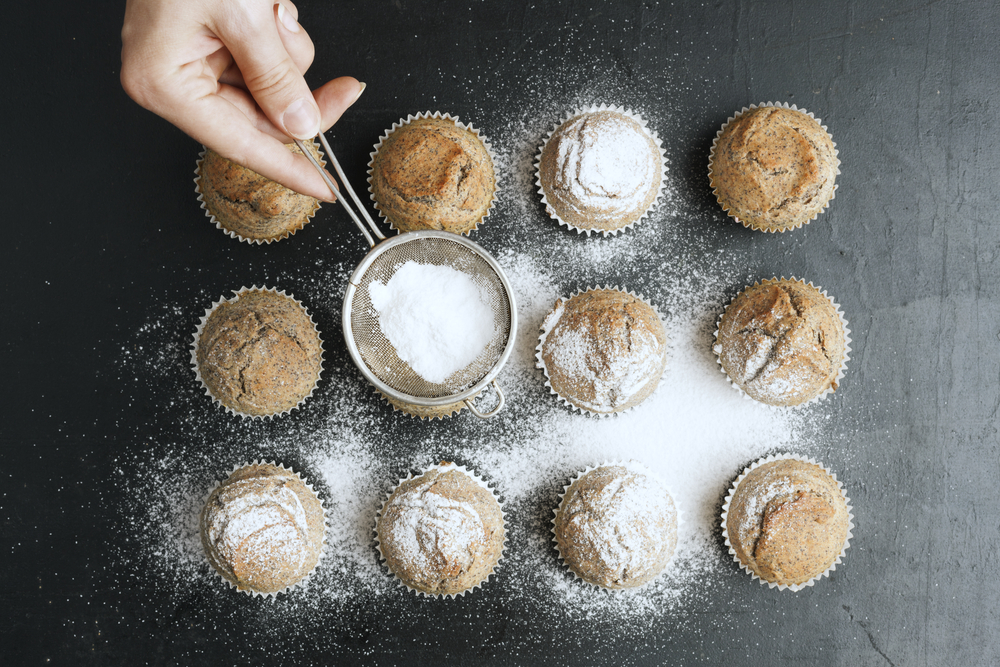
The Sweet Benefits of Making the Switch
Reducing traditional sugar is about more than just calories. The potential benefits are abundant:
Stable Energy Levels: Studies have shown reducing sugar intake means fewer sugar highs and crashes, which translates to sustained energy throughout the day.
Enhanced Mental Clarity: Diminished sugar intake might reduce foggy thinking or afternoon slumps.
Brighter, Healthier Skin: Some report fewer breakouts and improved skin health after reducing sugar.
Mood Stability: Less sugar might mean fewer mood swings and an overall more balanced emotional state.
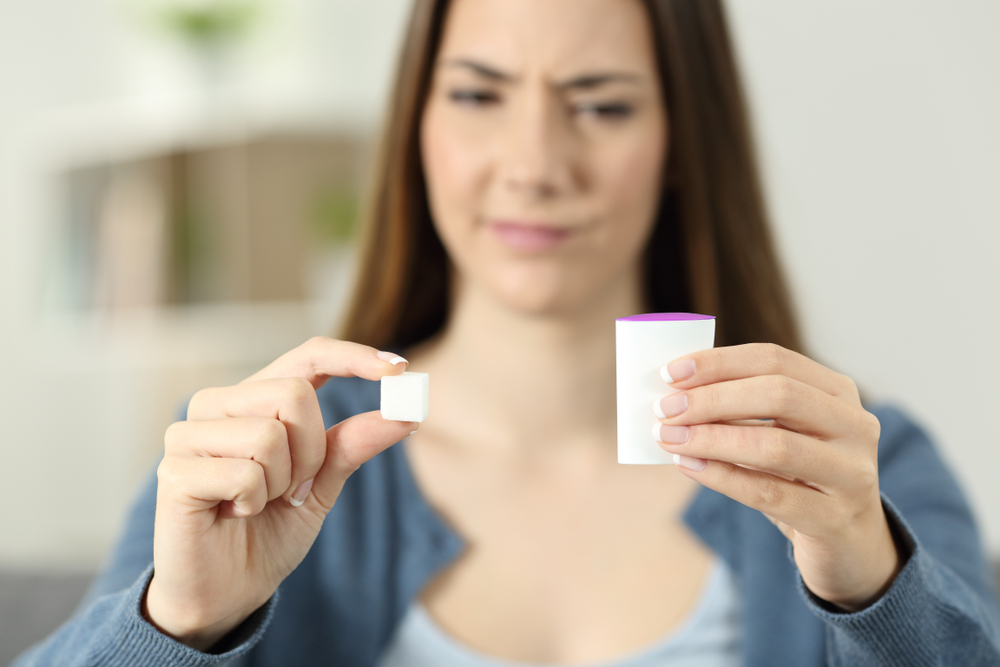
Summary
While these sugar alternatives offer a wide array of options, remember that individual reactions may vary. Always consult with a healthcare professional when making significant changes to your diet. Whichever sweet path you choose, here’s to a healthier, more informed journey into the world of sweetness!
